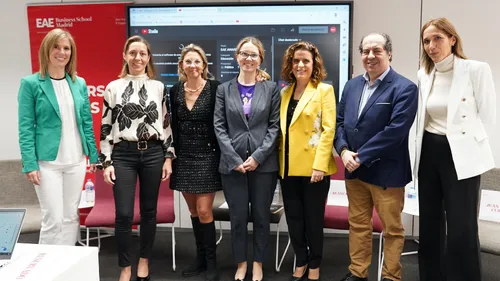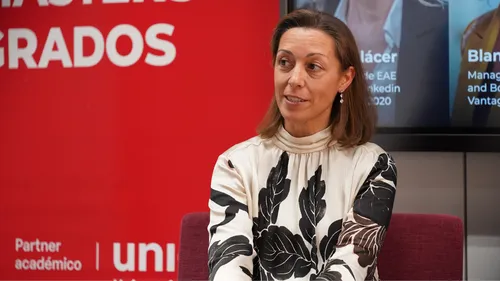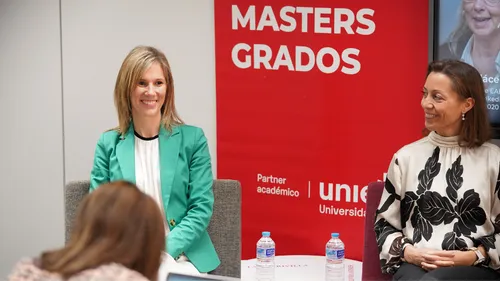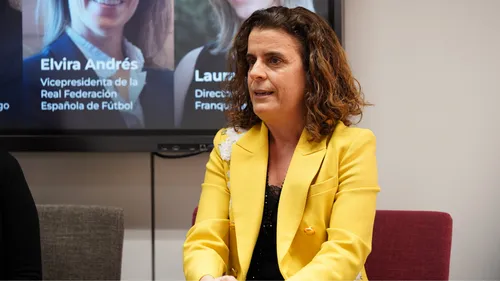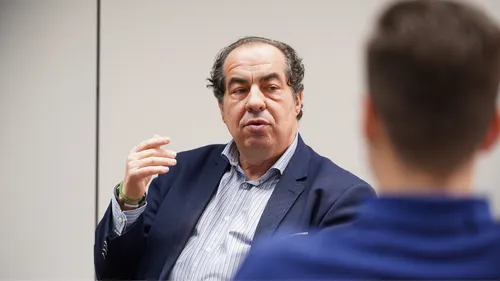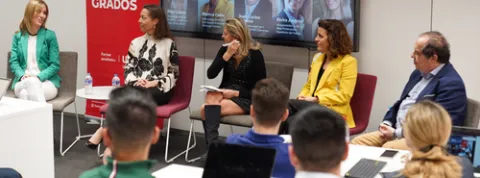
EAE Madrid organizes a round table on the occasion of Women's Day on Impostor Syndrome
On the occasion of Women's Day, EAE Business School Madrid has organized a round table entitled “The Impostor Syndrome” made up of Blanca Ceña, Managing Direct and Board President of Vantage Towers; Juan Carlos Cubeiro, Management Award 2022 Leadership Coach; Elvira Andrés, Vice President of the Royal Spanish Football Federation and Laura Rivilla, General Director of the McDonalds Franchise. The discussion was moderated by Pilar Llácer, a professor at EAE Madrid and Linkedin Top Voices 2020.
The round table was opened and welcomed by Sara Herrero, director of the Business & Talent academic department at EAE Madrid. Before giving way to the speakers, a video was broadcast in which Elisabeth Cadoche and Anne de Montarlot, writers of the book "The impostor syndrome. Why do women still not believe in themselves?" contributed statements to the round table.
First of all Elisabeth told where the idea of writing the book with Anne came from "we went to a conference given by a brilliant woman, a director in the media, who said at one point in the conference that she felt illegitimate" from that moment they began to talk to their friends about it and realized that many of them had been victims of a lack of self-confidence. From there came the idea of writing a book for all those women who lack confidence and believe how good they are.
On her side, Anne added that to work on that confidence it is important to "create a list with all your successes and what you have achieved with your talent to believe in yourself." She also recommended working on knowing your limitations, your strength and your values.
Next, Pilar opened the round table giving way to the four speakers. The first question was what their main professional failures had been and what they learned from them.
Blanca Ceña opened up, explaining a moment in her professional life when she was not counted on for a project and at that moment she learned three lessons such as "don't underestimate anything you don't know, have a side vision and no matter what happens you can always go up." Ceña summarized that he came back to come back and position himself.
Elvira Andrés, said that she began to assume responsibilities at work at a very young age and recognized excessive prudence or not knowing how to say things on time as a mistake... "It was difficult for me to tell people that things were badly done and over time I have learned that things have to be said, with education and assertiveness, but to say them”.
The round table continued with the theme of what skills companies need to grow and develop. Laura Rivilla explained that, according to her, companies currently lack skills that develop emotional intelligence. "You have to understand that with coffee for everyone in companies it doesn't work." Likewise, Laura considered that in companies "there is a lot of group work, but there is no teamwork".
Regarding this issue, Blanca Ceña explained that sometimes companies lack to maximize trust in the employee, and "if we want workers to be productive, we have to make them happy and work at ease".
Lastly, Juan Carlos Cubeiro said that in Spain we have a leadership problem, “we are very good at attracting talent, but we lack leadership”. Likewise, he said that to overcome the impostor syndrome you have to want to overcome it and work on assertiveness and self-confidence, "assertiveness is trained, since it is a mixture between empathy and self-confidence as well as self-confidence is self-esteem plus dignity" concluded Juan Carlos.
Pilar Llácer ended the round table by exposing the main conclusions of the issues discussed. Among the conclusions she highlights that within companies you have to learn to stick out ethically because often the view is not as fair as we would like. Another of the conclusions was that interpersonal relationships are very important, you have to know how to understand the person in front of you and have empathy. The third conclusion was that “many times we underestimate ourselves about what we know how to do. You have to lose your fear and say I'm brilliant at this and I'm going to do it. And finally "if we want workers to be productive we have to make them happy and work at ease".
